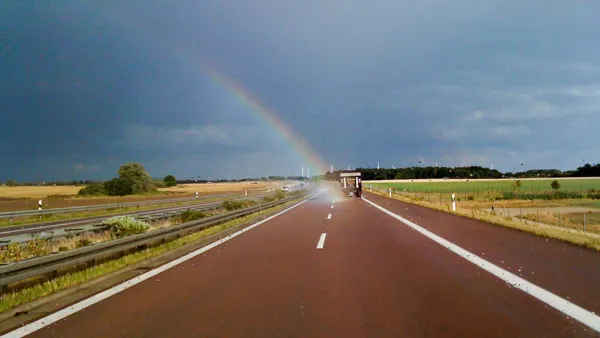Irvin Dawid discovered Planetizen when a classmate in an urban planning lab at San Jose State University shared it with him in 2003. When he left San Jose State that year, he took with him an interest in Planetizen, if not the master's degree in urban & regional planning.
As a long-time environmental activist, he formed the Sustainable Land Use committee for his local Sierra Club chapter and served six years on the Bay Area Air Quality Management District’s Advisory Council from 2002-2008. He maintains his interest in air quality by representing Sierra Club California on the Clean Air Dialogue, a working group of the Calif. Environmental Dialog representing business, regulatory and public health/environmental interests.
Major interests include transportation funding, e.g., gas taxes, vehicle miles traveled (VMT) fees, road tolls and energy subsidies that lead to unlevel playing fields for more sustainable choices.
He hails from Queens (Bayside) and Long Island (Great Neck); received an AAS in Fisheries & Wildlife Technology from SUNY Cobleskill and a B.S. from what is now Excelsior College.
After residing for three years on California’s North Coast, he’s lived on the San Francisco Peninsula since 1983, including 24 years in Palo Alto. Home is now near downtown Burlingame, a short bike-ride to the Caltrain station.
He’s been car-free since driving his 1972 Dodge Tradesman maxi-van, his means to exit Long Island in 1979, to the junkyard in 1988.
Major forms of transportation: A 1991 'citybike' and monthly Caltrain pass, zone 2-2. "It's no LIRR, but it may be the most bike friendly train in America."
Irvin can be reached at [email protected]
What Will It Take to Green Puerto Rico Again?
Not only did Hurricane Maria destroy most of Puerto Rico's man-made infrastructure, it also defoliated the island's vast tropical forests, upsetting the forest ecology—in the short term.

California's New 'By-Right' Housing Law: Will it Make a Difference?
A new law could enable affordable housing projects, if they meet the specified criteria, to bypass the public process that so often blocks their approval.

What's Behind the Removal of Public-Private Partnerships from Trump's Infrastructure Plan?
Partnering with the private sector carries risks. Witness the mess that followed the selection of a private firm to build an interstate in Indiana in 2014 that Vice President Mike Pence should have prevented in his prior position as governor.

Can I Have a Diet Coke With That Ice Cream Sundae?
Essentially that's what UC Davis, Yale, and MIT researchers found among California families who purchase very fuel efficient vehicles—they also pair them with gas hogs. If your family owns two vehicles, do you meet the profile?

California's 15 Housing Bills Won't Do Enough
At a new affordable housing project in a low-income neighborhood of San Francisco, Gov. Brown signed the package Friday that places a $4 billion housing bond on the ballot next year, adds a $75 real estate transaction fee, and streamlines permitting.

























